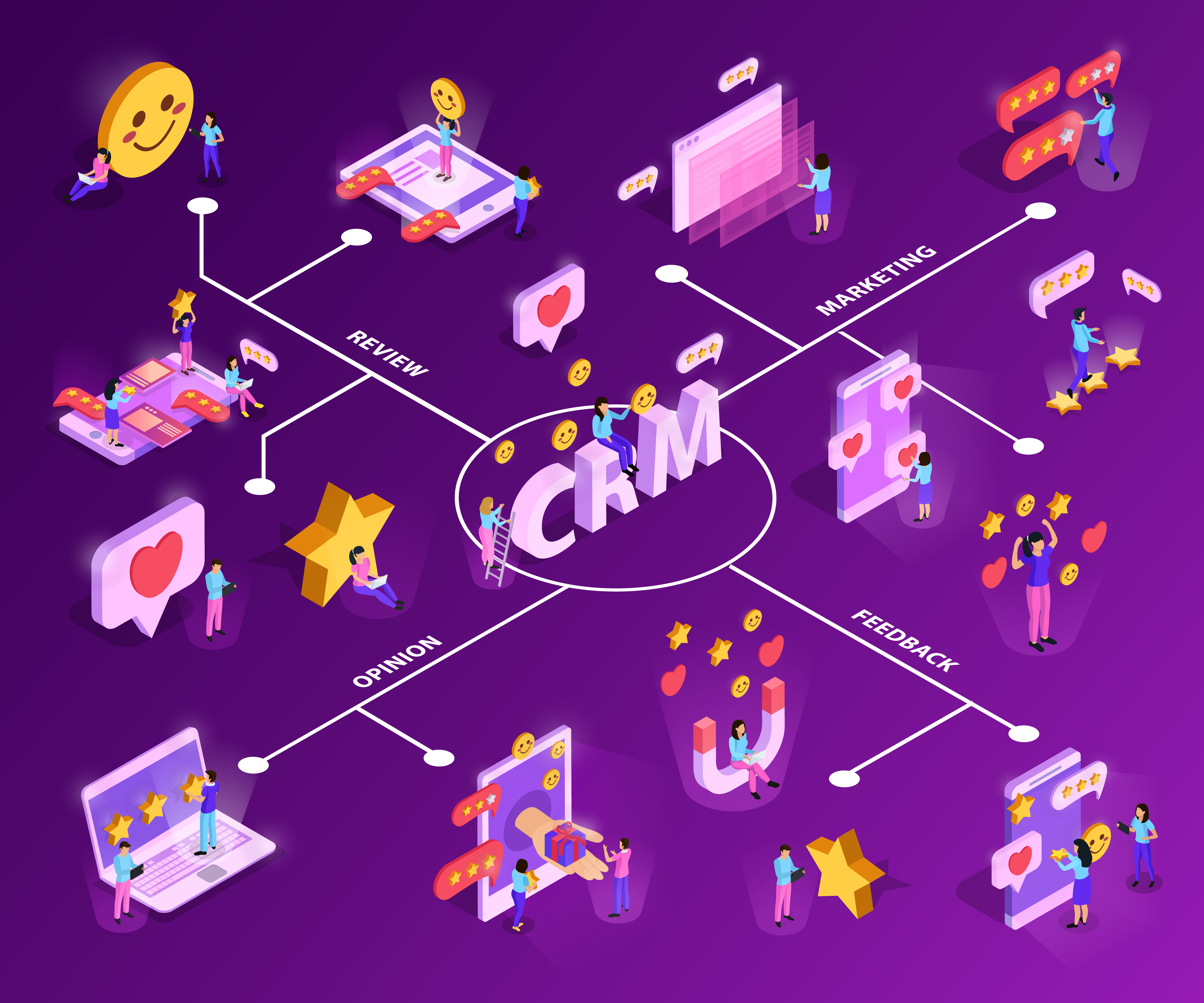
Dear Esteemed Readers,
Welcome to the latest edition of "Future Mortals," your go-to destination for all things related to cutting-edge marketing & branding strategies and trends. In an era where the Business landscape is constantly evolving, we are thrilled to embark on this journey of knowledge-sharing and innovation with you.
As your business grows, manually keeping track of your prospects and customers with spreadsheets and random notes in different places becomes near impossible.
Not only is this type of system time- and energy-consuming to manage, but things also start slipping through the cracks at an alarming rate. This only serves to exhaust your team and disappoint to your customers.
You don't want this to happen to you, do you? Right. That's why you need a CRM.
What does CRM stand for?
CRM stands for “customer relationship management.” A company’s CRM stores all interactions with potential and existing customers — everything from someone’s first visit to your website and activity on your website to the exact time they opened your sales proposal and how long they looked at it.
Customer relationship management (CRM) software has become a near-vital tool for businesses of all sizes. CRM software can provide several benefits to any business, from organizing contacts to automating key tasks. It can also be a centralized, organized hub that enables consistent communication both with customers and within the organization. This is especially important as more organizations shift to remote work.
1. Better Customer Experience:
It’s much easier to provide a positive buying experience when you know a lot about your prospect. Seeing at a single glance every blog post, email, and ebook they’ve opened and/or read, as well as key details like their company’s size, location, and vertical, gives you a major leg up.
2. Higher Productivity
With a CRM, you can automate tasks like call and activity logging, reporting, deal creation, and more. The less time reps are spending on administrative work, the greater number of hours they have to get in front of prospects. Your revenue will increase proportionally. CRM boosts rep collaboration and efficiency.
3. Improved customer retention
Once you’ve procured and converted leads, it’s vital that you put in the work to retain them as customers and promote customer loyalty. High customer turnover can have many negative effects for your business, like diminished revenue or disrupted cash flow, so use your CRM and the information it provides about your customers to encourage repeat business. The CRM will provide sentiment analysis, automated ticketing, customer support automation and user behavior tracking to help you determine problems and quickly address them with your customers.
4. Detailed analytics
It’s one thing to have plenty of data about your customers, but you need to know what it means and how to use it. CRM software typically has built-in analytic capabilities to contextualize data, breaking it down into actionable items and easily understood metrics. Metrics, such as click-through rates, bounce rates and demographic information allow you to judge the success of a marketing campaign and optimize accordingly.
4. Higher productivity and efficiency
CRM software uses marketing automation technology, which expedites menial tasks like drip campaigns and frees up your employees’ time to focus on work only humans can handle, like creating content. It can also ensure that no tasks slip through the cracks, such as all-important emails are always sent to the right people. Additionally, a CRM can show you a dashboard of how your business processes are working and where your workflows could improve.
5. Greater Insights
Stop wondering how your salespeople are doing. A CRM will give you both a high-level and on-the-ground picture of rep performance, including team-wide and individual conversion rates by deal stage, average deal size, deal velocity — and that’s just scratching the surface.
6. Accurate sales forecasting
With any business operation, you need to be able to review your past performance and strategically plan for the future. Using the automated sales reports in CRM software, you can identify key trends and get an idea of what to expect from your future sales cycle performance while adjusting your goals and metrics to suit those projections.
Not all customers are created equal, so the value of a CRM is that it helps you keep the right customers and deploy your precious marketing dollars towards the customers that will return the highest value over their customer lifetime.
Hope with this blog you would have understood the benefits CRM software can offer to your Small Business.
We are excited to embark on this journey with you, exploring the vast realm of online marketing, branding, technology and other informative topics and sharing our insights to empower you in your business endeavours. The digital world is ever-evolving, and together, we'll navigate the trends, challenges, and opportunities that lie ahead.
Thank you for joining us on this enlightening ride. Stay tuned for the captivating insights and knowledge that we are all set to bring in each edition.
© All Rights Reserved | Future Mortals